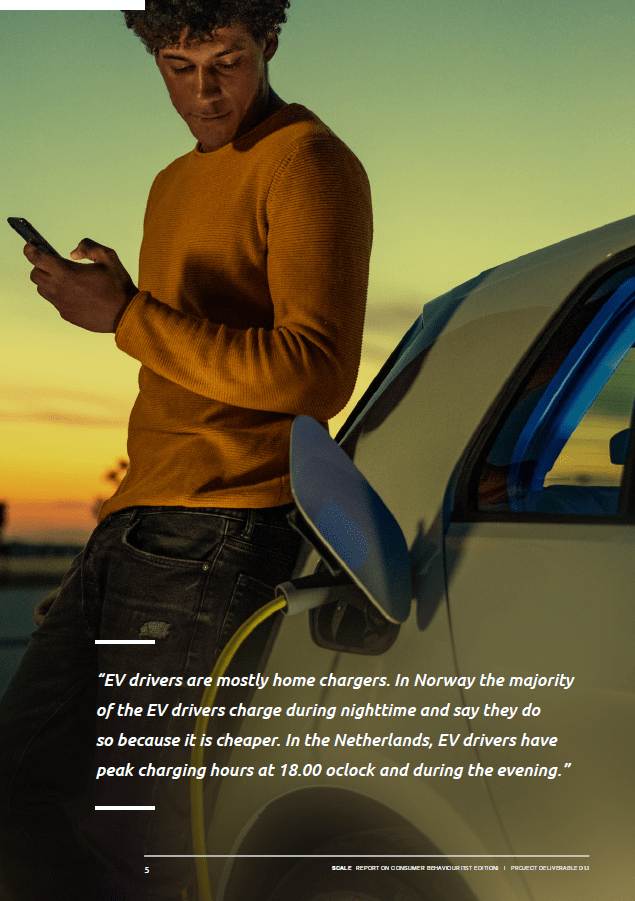This report analyzes EV drivers’ behavior, their needs and challenges. This report uses results from research articles, reports and surveys conducted by both external parties and partners within the SCALE project. In this first edition of the consumer behavior report, the purpose is to highlight EV drivers’ charging behavior, smart charging habits and what considerations they have when they decide whether to adopt new charging technology.
The first edition of the consumer behavior report relies mainly on surveys through digital questionnaires already conducted in Norway, Netherland, Sweden, Denmark, Iceland and Finland by partner organizations in the SCALE project. The main results studied are from the Norwegian EV driver survey 2022 conducted by the Norwegian EV Association, and the Dutch National Charging Survey conducted by Elaad and VER (the Dutch Electric Vehicle Drivers Organization).
EV drivers are mostly home chargers. In Norway the majority of the EV drivers charge during nighttime, and say they do so because it is cheaper. In the Netherlands, EV drivers have peak charging hours at 18.00 oclock and during the evening. The Dutch EV drivers seem less motivated to change charging behavior due to price levels, but this must be studied closer due to an ever changing energy situation in Europe as well as a possible correlation with households’ present electricity contracts. Many EV drivers are already
charging smart in Norway and the Netherlands. The potential to increase that amount and charge even smarter is also present, especially in the Netherlands where 68% of EV drivers own solar panels. In the Nordic countries, limited charging opportunity at home is an important barrier against getting an EV among consumers that do not already own an EV. This is important to be aware of going forward to a fully electric car market in Europe by 2035.
This report is the first of a series of reports on consumer behavior. The second edition of this report will include results from a SCALE specific survey, further studying consumers needs and challenges related to vehicle-to-anything technology and smart charging.

